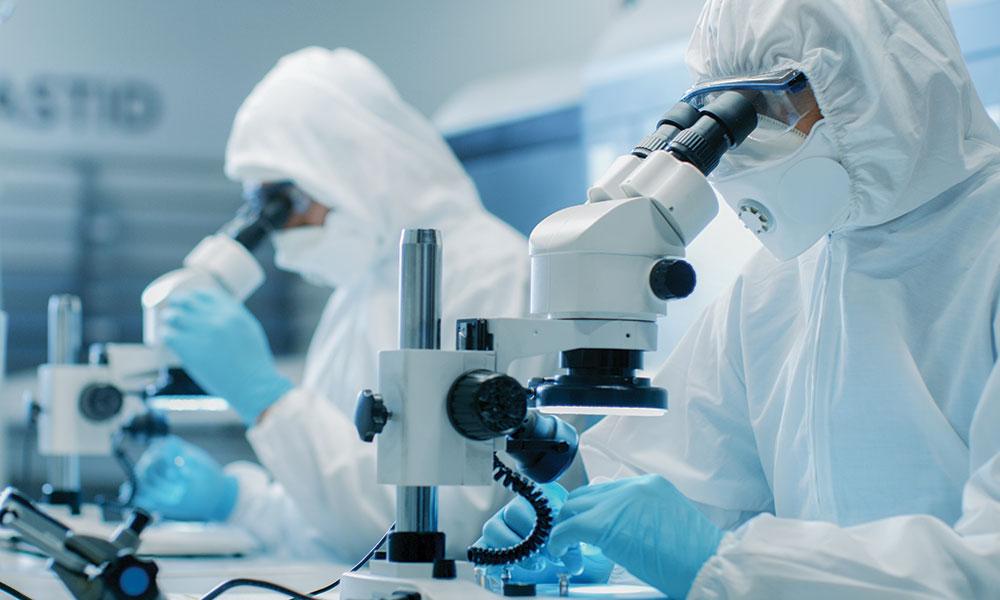
Special Report Covid-19 Vaccinations and Catholic Moral Teaching
We may morally receive the currently available COVID-19 vaccines.
The Church teaches that it is morally permissible for Catholics to receive the COVID-19 vaccines currently available in the United States, and it has provided general principles on the reception of vaccines that can guide us in this specific situation. When choosing to accept a COVID-19 vaccine, we should follow these moral principles:
We should opt for a vaccine that has the smallest connection with abortion as possible. Ideally, that would mean taking a vaccine with no connections to abortion at all. However, in situations when no such vaccines are readily available, it is morally acceptable to take a vaccine with a lesser connection to past abortions.
If we accept a vaccine with some connection to abortion, we ought to voice our moral objection to the ongoing use of abortion-derived cell lines in the making of these vaccines and other health products.
Moral status of vaccines available in the United States at the time of print
Although various Church authorities have encouraged the taking of COVID-19 vaccines as morally permissible, and highlighted how vaccination can contribute to the common good during a pandemic, it is not morally obligatory for Catholics to receive such a vaccine. The Congregation for the Doctrine of the Faith (CDF) in its note on the morality of these vaccines states, “practical reason makes evident that vaccination is not, as a rule, a moral obligation and that, therefore, it must be voluntary.”
At the same time, those who decline vaccination should take appropriate measures to ensure that they do not contribute to the spread of disease. The CDF says in the same document quoted above, “Those who, however, for reasons of conscience, refuse vaccines produced with cell lines from aborted fetuses, must do their utmost to avoid, by other prophylactic means and appropriate behavior, becoming vehicles for the transmission of the infectious agent.”
We should advocate for more ethical research and pharmaceutical development.
The Catholic Church has pointed out the importance of advocating for ethical change in the area of biomedical research, especially when standing practices are an affront to human dignity. For instance, the Congregation for the Doctrine of the Faith writes in Dignitatis personae (n. 35), “everyone has the duty to make known their disagreement [to the use of abortion-derived cell lines] and to ask that their healthcare system make other types of vaccines available.”
Bishop Daly encourages two practical forms of advocacy:
- Directly contacting pharamceutical companies that use abortion-derived cell lines to voice our moral objection.
- Financially supporting research institutes, like the John Paul II Medical Research nstitute, which are working to develop technologies to reduce and eliminate the biomedical industry’s reliance on ethically problematic materials.
For more information, including contact information for pharmaceutical companies and a model moral objection letter, visit WWW.DIOCESEOFSPOKANE.ORG/ADVOCATE-FOR-ETHICAL-RESEARCH
Letter From Bishop Daly
On Jan. 29, Bishop Thomas Daly wrote a letter to the faithful of the diocese concerning the COVID-19 vaccine options and the moral concerns surrounding the vaccines. He writes: “The distribution of vaccines designed to combat COVID-19 has been an occasion of hope for many people. At the same time, a cell line derived from a past abortion was involved in the overall process that created the three vaccines currently available in the United States. This fact has raised a significant moral question for Catholics and other pro-life individuals: Can we morally take such a vaccine? I have heard the worry, confusion, and fear borne by people as they have grappled with this question and other matters associated with the vaccine.”
Bishop Daly’s letter focuses on three points:
- We may morally receive the currently available COVID-19 vaccines.
- We are not morally obligated to take a COVID-19 vaccine.
- We should advocate for more ethical vaccine research and pharmaceutical development.
Bishop Daly concludes the letter by encouraging the Catholic faithful to unity, saying: “It has been over a year since a Catholic hospital in Washington state treated the first confirmed COVID-19 case in the United States. Since then, Catholics, from the bedside to the church pew, have confronted the challenges of this time with admirable generosity, ingenuity, and – above all – confidence in God. Yet we have also experienced how this pandemic has engendered resentment and division in our society and even within the Body of Christ. Sadly, we have seen differences in prudential decisions overshadow the unity rooted in charity and the sacraments. If we look at the present question of whether to accept a COVID-19 vaccine, we know that people will come to differing conclusions as they weigh both moral and prudential matters. For instance, a man may choose to accept vaccination to protect his health and livelihood, and his neighbor may discern that she should reject vaccination as part of a principled stand against violations of human dignity. They are morally free to make such choices. We ought not allow our differing responses to the demands of these times be occasions for division. Instead, I exhort us to be united in our common pursuit of virtue, respect for our neighbor, and humble reliance on God’s grace.”
To read the full letter visit the diocesan website: WWW.DIOCESEOFSPOKANE.ORG/GUIDANCE-ON-COVID-19-VACCINES



